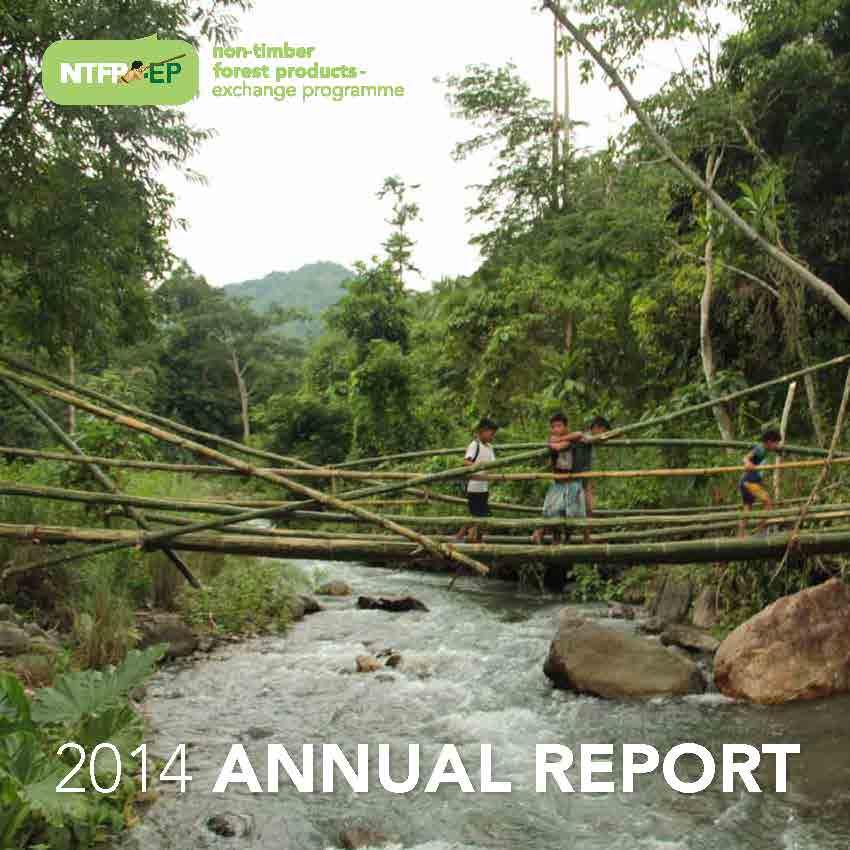2014 was a challenging year for Malaysia which experienced two airline tragedies and the worst flooding to hit the country in decades. The Philippines also had its share of flooding and a serious blow to a landmark peace agreement with Moslem rebels. Cambodia continued its reforms amidst a rapidly shifting climate of politics and economics. Both India and Indonesia went through a change in governments resulting in new policies that have a bearing on the advocacies of non-government organizations. But in spite of all these challenges, NTFP-EP continued to work with its partners in strengthening the capacity of forest-based communities.
Accomplishments focused on the themes of conservation and sustainable resource management; food and health security; land rights, tenure and policy; and income generation for the forest-based communities. These include a more comprehensive database for NTFP species that was completed and is scheduled for uploading in our website, better harvest protocols for honey and resin, documented harvest strategies for some 65 species, creation of wild food nurseries, inroads in resin market and trade initiatives, among others.
There were exchange visits on Indigenous Peoples’ and Community Conserved Territories and Areas (ICCAs) and Tenurial Security, as well as visits between Indonesia and the Philippines on forest honey networks, between India, Malaysia and Indonesia on documenting forest foods including river fish. NTFP-EP with its partners joined the World Parks Congress in Australia and collaborated with the ASEAN Social Forestry Network (ASFN) to continue working with governments and other institutions. Enterprise development projects focused on the two value chains of forest honey and natural resin, and on resource assessment of potential NTFPs available for local consumption and/or commercialization. To further expand community forest enterprise initiatives, NTFP-EP launched its training programme called Expanding Community Enterprises and Economic Development (EXCEED) with its first training on the mechanics of up scaling community forestry enterprises.
Organizationally, NTFP-EP went through a number of changes at the regional level with a new president of the board of trustees and a new Cambodia coordinator. At the country level, Indonesia office had a turnover of staff, while the Philippine office began the process of becoming a separate entity.




